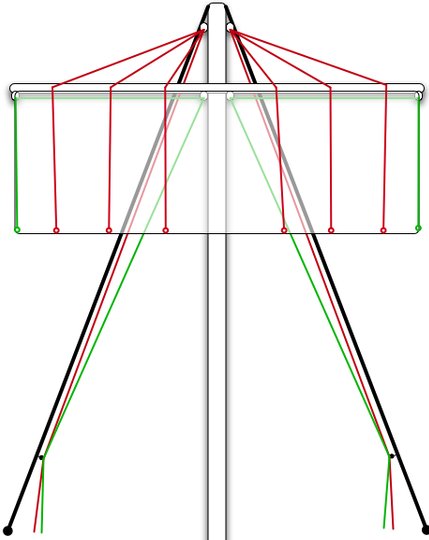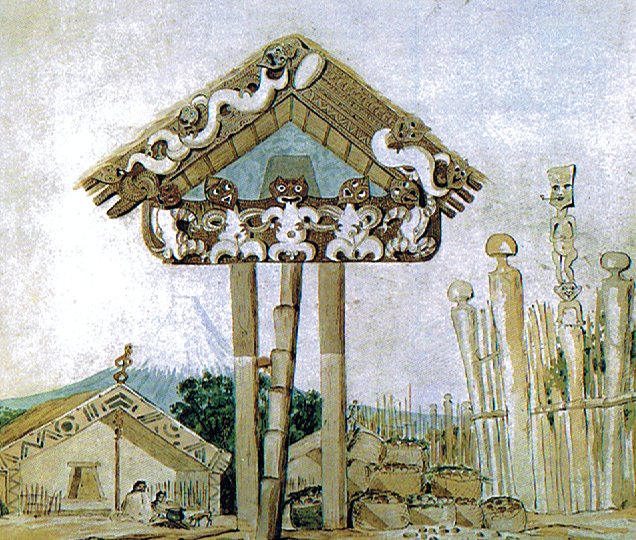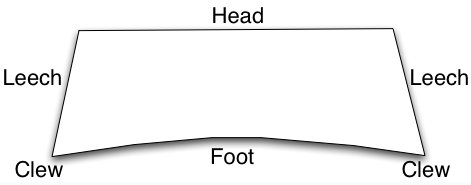|
584
38 At Ab1-1 Metoro did not use the otherwise expeceted word viri:
Instead he saved this key (clue) word until the final glyph of this type. He followed the example of the creator of the A text in distinguishing between them:
Ideally the sail of a ship had 4 corners with the pair at bottom named Clew:
And one of the possible translations of viri was clew. ... To turn in a circle, to clew up, to groom, to twist, to dive from a height, to roll (kaviri). Hakaviri, crank, to groom, to turn a wheel, to revolve, to screw, to beat down; kahu hakaviri, shroud. Viriga, rolling, danger. Viriviri, ball, round, oval, bridge, roll, summit, shroud, to twist, to wheel round, to wallow. Hakaviriviri, to roll, to round; rima hakaviriviri, stroke of the flat, fisticuff. P Pau.: viriviri, to brail, to clew up; koviriviri, twisting. Mgv.: viri, to roll, to turn, to twist; viviri, to fall to the ground again and again in a fight. Mq.: vii, to slide, to roll, to fall and roll. Ta.: viri, to roll up, to clew up. Viritopa, danger. Mgv.: Viripogi, eyes heavy with sleep. Mq.: viipoki, swooning, vertigo ... Which we then could use to explain why the Polynesians said raa for a sail. Raa Sun; day; i te raá nei, today; raá îka, good day for fishing. Vanaga. 1. Sun. 2. Day. 3. Time. 4. Name of sub-tribe. Fischer. Te manu i te raá = comet. Barthel. '... The substitution of the sun for the sail, both of which are called ra or raa in Polynesia, is a remarkable feature in Easter Island art ... ' Heyerdahl 3. 1. The sun; raa ea mai, raa puneki, sunrise; raa tini, raa toa, noon. P Mgv., Ta.: ra, the sun. Mq.: a, id. 2. Day, date; a raa nei a, to-day, now; raa i mua, day before. P Mgv., Ta.: ra, a day. Mq.: a, id. Churchill. '... The chief thus makes his appearance at Lakeba from the sea, as a stranger to the land. Disembarking at the capital village of Tubou, he is led first to the chiefly house (vale levu) and next day to the central ceremonial ground (raaraa) of the island ...' (Islands of History) Ta.: toraaraa, to raise up. Churchill 2.

|
||||||||||||||||||||||||||||||||||||||||||||||||||||||||




